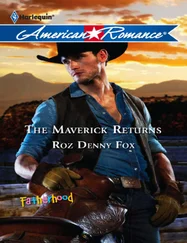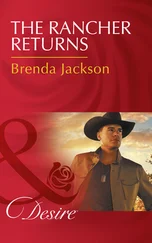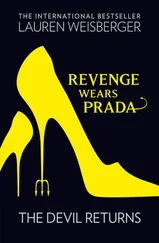“You’ve done well, Fausto,” Forlenza said. “I hear good things.”
“Thank you, Godfather,” Geraci said. “We hit a rough patch, but we’re making progress.”
Forlenza smirked. His disapproval might have been gentle, but it registered; a Sicilian doesn’t have the American faith in progress, doesn’t use the word the way Geraci just had.
Forlenza motioned to a round table by the window. The storm raged even stronger now. The nurse pushed Forlenza to the table. Geraci continued to stand.
Narducci returned, accompanied by the other Dons and their bodyguards, who’d freshened up from their airsickness episode but still seemed shaky. Frank Falcone entered with a heavy-lidded stare, bovine in its blankness. It told the whole story. Molinari had, as planned, told him who Geraci was. Falcone pointed at the paintings of men in jodhpurs and pale stout women in tiaras. “People you know, Don Forlenza?”
“Came with the place. Anthony, Frank. Let me introduce you to an amico nostro. ” A friend of ours. A friend of mine was just an associate. A friend of ours was a made guy. “Fausto Dominick Geraci, Jr.”
“Call me Nick,” Geraci said to Falcone and Molinari.
“A good Cleveland boy,” Forlenza said, “Ace, we used to call him, who now does business in New York. He is also, I am proud to say, my godson.”
“We met,” Falcone said. “More or less.”
“Eh, Frank. I’m sure you can indulge a man’s pride in his godson.”
Falcone shrugged. “Of course.”
“Gentlemen,” Geraci said, “I bring you greetings from Don Corleone.”
Forlenza looked at the guards and pointed to Geraci. “Go ahead, do your job.”
Geraci presented himself to be frisked, though of course they’d done it to him back in Detroit, too. One more time today and we’ll be going steady, he thought. This search was state of the art, complete with a hand inside his shirt and under the band of his underpants, looking for recording devices. As they finished, two white-haired waiters in bow ties brought out a crystal tray of biscotti all’uovo, small bowls of strawberries and orange wedges, and steaming glass mugs of cappuccino. They set a silver bell beside Forlenza and left.
“They came with the place, too.” Forlenza took a sip of his cappuccino. “Before we get started,” he said, “you must all understand that the decision to invite an emissary from Don Corleone was mine alone.”
Geraci doubted this but had no way of knowing for certain.
“No offense, Vincent,” said Falcone, “or, what’s-your-face? Geraci. No offense, but I still can’t get used to calling that little pezzonovante Michael Don Corleone. ” Falcone had ties with the Barzini Family and also with a Hollywood union guy named Billy Goff whom the Corleones had supposedly clipped. On top of which, he had made his bones in Chicago, under Capone.
“Frank,” said Molinari. “Please. This accomplishes nothing.”
Forlenza asked them to sit, and they did. Narducci sat in a leather armchair a few feet away. The bodyguards took seats on a sofa against the far wall. As they all watched, the nurse, without a cue, turned and walked out of the room.
Falcone gave a low whistle. “It’s that white uniform. You could put any dame in one of those, I’d want to bend her over a gurney, hike it up, and screw her silly. Every time I go to the hospital, my dick gets so hard and stays so hard they got to give me extra blood.”
“Frank,” said Molinari.
“What? Jokes are fucking wasted on you, my friend.”
Forlenza asked Molinari and Falcone about the wedding of Joe Zaluchi’s daughter and Pete Clemenza’s son, who wasn’t in the business per se (he built shopping centers). They also asked how it was that a Cleveland boy had come to fall in with the Corleones. Geraci said that after his boxing career didn’t work out, he was stuck in New York with a wife and kids, and his godfather made some calls. Some expression returned to Falcone’s face. Forlenza cleared his throat in a way everyone understood as a call to order, took a long drink of water, and began.
“ Sangu sciura sangu, ” he said. “Blood cries for blood. This has been the undoing of our tradition in Sicily. An endless spiral of vendettas has left our friends there less powerful than any time in a century. Yet here in America we are flourishing as never before. There is enough money, enough power, for everyone. We have legal operations in Cuba and, particularly in the case of the Families represented here, Nevada. The amount we can make from this is, if I may be honest, limited only by our imaginations and- ” he held up one finger-“ and by our unfortunate tradition of riding the runaway train of vendetta to oblivion.”
Forlenza looked toward the high white ceiling and continued in Sicilian, which Geraci understood though couldn’t really speak. “Perhaps there are men in this room who know who is responsible for the killings in New York.” He gave Geraci, Falcone, and Molinari each a glance of precisely equivalent duration, then took a long, strategic sip of his cappuccino. “Emilio Barzini, a great man and one of my oldest, dearest friends, has been killed. Phillip Tattaglia is dead.” Forlenza paused to eat one of the tiny biscotti, underscoring all that was implied in his lack of any encomium to describe the weak and whiny Don Tattaglia. “Michael Corleone’s oldest, wisest caporegime, Tessio, was killed. Don Corleone’s brother-in-law, the father of his baby godson, was killed. Five other amici nostri, dead. What happened? Maybe one of you knows. I for one do not. My sources tell me that Barzini and Tattaglia, frustrated by the weak protection their narcotics business got from the Corleones’ judges and politicians, went after the Corleones and were killed in return. Perhaps. Others say Michael Corleone killed Barzini and Tattaglia so he could transfer his base of operation west and have it not seem to be a move made out of weakness. A possibility, no question. Could it be that we are witnessing revenge for the deaths seven years ago of the eldest sons of Vito Corleone and Phillip Tattaglia? Why not? In such matters, seven years can be but the flick of a fish’s tail. Or”-and here he took another cookie and took his time munching it-“perhaps-who knows?-this is all a plot by Don Stracci and Don Cuneo, whose families have never had the power held by either the Barzinis or the Corleones, to seize control of New York. Their quick negotiations for peace have, in the minds of many people, added force to this speculation. Even the newspapers are adopting this wild guess and promulgating it to the stupid masses as fact.”
This inspired knowing chuckles. The newspaper stories were plants. The Straccis’ power base was New Jersey, and the Cuneos ran upstate New York (and the biggest milk company in the region, which was how Ottilio Cuneo had become “Leo the Milkman”). Neither was believed to be powerful or ambitious enough to make an attack on the three stronger families.
“Or maybe,” Falcone said in English, “who knows? The Corleones killed ’em all.”
Falcone, Geraci was fairly certain, would have been surprised to learn that his angry hyperbole was one hundred percent correct.
“Even their own men?” Molinari said. Though a friend of the Corleones, Molinari, too, almost certainly did not know what had really happened in New York. “C’mon, Frank.”
Falcone shrugged. “I don’t know. I’m like Vincent, I can’t unravel this fuckin’ thing. I hear people talkin’, that’s all. But a lot of what I hear is that even though Don Vito, may he rest in peace, pledged on his life that he would not avenge his son’s death, what’s-his-face-”
Читать дальше











